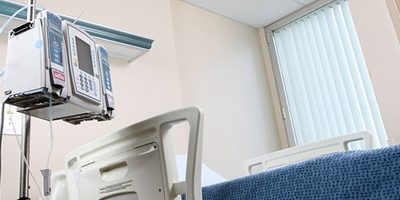
CPACS-2 Study draws to a close
On October 13, The George Institute for Global Health, China hosted a meeting in the heart of Beijing with the hospital managers, doctors, project investigators and supporters of the Clinical Pathway for Acute Coronary Syndrome (CPACS-2) study.
The Clinical Pathways in Acute Coronary Syndromes in China Study (CPACS) is a three-part study that focuses on how hospitals in China manage acute coronary syndromes (ACS). Acute coronary syndrome covers a range of heart-related conditions following acute myocardial ischemia, or heart attack, which has been recognized as one of the major forms of heart disease - the world’s biggest killer.
CPACS-2 is a large, high quality randomised control trial that involved 75 hospitals and 15,000 patients. It is the first study to test outside of a high income country whether a clinical pathway can improve quality of care, reduce costs to patients and health systems, and increase patient satisfaction.
The study found that there are significant barriers for effective care for ACS patients in China, such as costs and health systems issues, which are similar to barriers faced in other countries.
President of the Chinese Society of Cardiology, Professor HU Dayi, emphasized that barriers in healthcare policy must be overcome, and that doctors should change their focus from hi-tech tools to cheap and effective treatment to help their patients live a long and healthy life.
Professor WU Yangfeng, Executive Director of The George Institute, China, Dr GAO Runlin from the Chinese Society of Cardiology, and Dr Fiona Turnbull, Director of the Cardiovascular Division of The George Institute, Australia described some of the key results of CPACS-2 and the significance of the upcoming third phase of the study, CPACS-3.
“Although clinical pathways are being promoted at home and abroad, there is no adequate data on how well they work for our country at the moment. I believe this well-designed, properly implemented, and carefully evaluated project will play a critical role in regulating healthcare practice, improving care quality, and ensuring medical safety in regard to acute coronary syndrome in China,” said Professor Wu.
The results of CPACS-2 have not only fed directly into the next phase of the study, CPACS-3, but will also inform changes in treatment and care of ACS through the Ministry of Health. Speaking at the close-out meeting, HU Ruirong an officer of the Ministry of Health highlighted their support and involvement with CPACS-2 by encouraging hospitals to collaborate and participate in the study.
Investigators and supporters are now looking towards the future with CPACS-3 launching as an official project of the Ministry of Health on July 28 2011 in 96 hospitals across 15 provinces of China.
CPACS is a joint project of the Chinese Society of Cardiology and The George Institute for Global Health, China with the guidance and support of the Ministry of Health.



